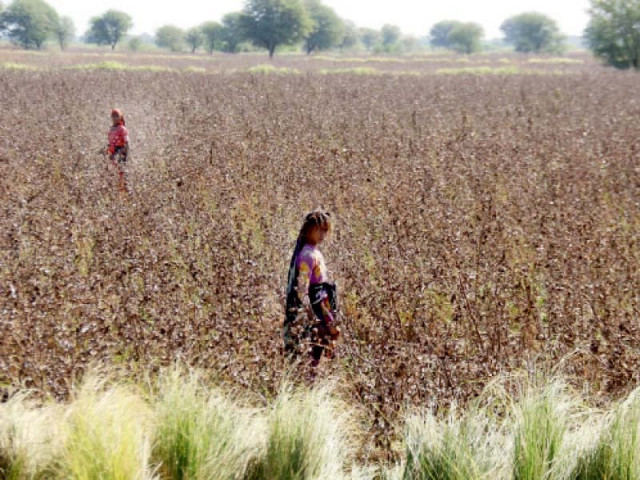Growers urge crop insurance, reforms
Farmers seek climate resilience, better market policies, and support for organic farming

Grower bodies have called for crop insurance, service-result-oriented initiatives to mitigate the impacts of climate change, and well-defined import and export policies, among other measures, aimed at encouraging small peasants, while presenting proposals for the federal budget 2024-2025. Representing various grower bodies, growers and progressive farmers who yielded these budget proposals included Sindh Chamber of Agriculture (SCA) Senior Vice President Nabi Bux Sathio, Farmer Organisations Council Sindh Chairman Jawaid Junejo, and others.
They urged the government to announce crop insurance so that poor growers may insure their standing crops against any damage resulting from climate change events such as mammoth floods, torrential rains, boiling heat, acute water shortages, droughts, and other natural catastrophes. Building a strong network for the disposal of floodwaters may mitigate the losses of peasants. Adopting new agricultural technologies can ensure and enhance food security, as the increasing mechanisation of farm work is mandatory and essential in this era.
To promote the most demanding organic crops throughout the world, the government should establish a mechanism to offer attractive incentives to growers who intend to transition to these types of crops, which are typically produced later and in smaller quantities. There is a significant difference between organic and inorganic crops, and the government should properly fix prices to reflect this distinction. Moreover, out of more than 80 market committees in Sindh, only a couple are currently functional, while the rest are dysfunctional. All of these committees must be made functional immediately across the country, they said.
Commercial banks must announce farmer loans for agricultural machinery at nominal mark-ups with the goal of promoting the value addition of mangoes, dates, and other fruits for processing, packaging, and enhancing shelf life. Constructing road infrastructure can help growers reduce exorbitant transportation costs, especially after the implementation of the Axle Load Regime (ALR).
An explicit export and import policy must be formulated, they urged, adding that growers must be informed in a timely manner so that they can avoid growing crops that are already abundant in government godowns. Currently, wheat growers have been suffering huge losses due to the ineptitude of both federal and provincial governments. Substandard seeds of both major and minor crops, as well as fertilizers, must be banned in local markets, and actions must be taken against officials of both public and private organisations involved in such practices. Only certified seeds must be made available in markets.
Regarding the livestock sector, the growers suggested that, through artificial insemination, new breeds of cows, goats, sheep, and other animals can be introduced to meet the rising demands for milk and organic meat within the country and abroad. Proper vaccination campaigns for animals must be conducted in each and every district to contain any viruses and general diseases.
Meanwhile, farmers cannot afford any new taxes as they are already paying several taxes, including income tax, abiyana (water charges), and agriculture tax, depending on the rates of crops. Thus, these proposals aim to support and uplift the agriculture sector, ensuring sustainability and growth for the future.
Published in The Express Tribune, May 28th, 2024.
Like Business on Facebook, follow @TribuneBiz on Twitter to stay informed and join in the conversation.



















COMMENTS
Comments are moderated and generally will be posted if they are on-topic and not abusive.
For more information, please see our Comments FAQ